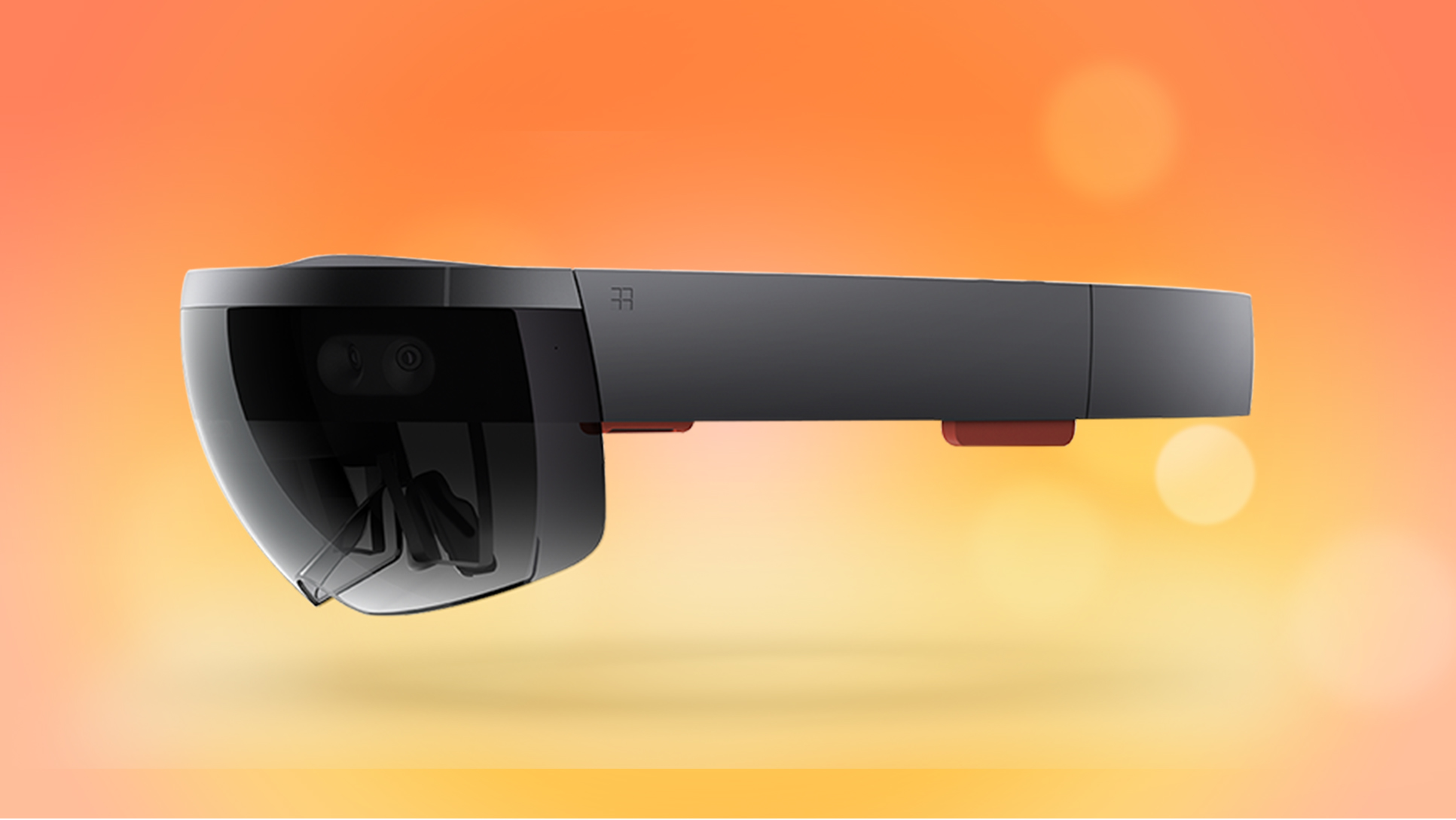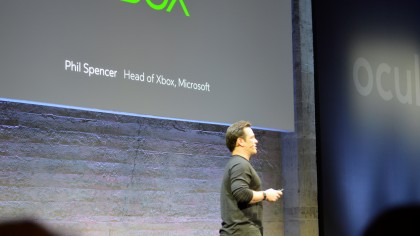What does Microsoft's partnership with Oculus mean for HoloLens?
Microsoft Rift (or Ocusoft?) changes everything

We all knew Facebook took the Oculus Rift under its wing, but now we know that Microsoft has joined the flock in a big way, too.
Not only is the Xbox One controller shipping with the headset come Q1 2016, all Xbox One games will be ready to stream through Windows 10 to the Rift device.
It's a partnership that makes sense, considering the Oculus Rift will only run on Windows machines. This was announced last month, when Oculus revealed the minimum hardware required for a PC to run games through the Rift properly. In fact, it's this this piece of info that should have been the biggest clue foreshadowing the partnership.
Yet we were surprised by the revelation of Microsoft's involvement during Thursday's event, primarily because it already has its foot in the virtualised door with HoloLens.
The partnership then begs the question, if Microsoft is backing Oculus Rift, what does it mean for the future of the Windows 10-maker's ambitious augmented reality headset?

Phil chimes in
After Thursday's event, Xbox Chief Phil Spencer took a moment to answer questions about the whole shebang with a small group of journalists. When asked how the relationship would impact HoloLens, he focused on the positives for everyone involved.
"It felt like the right move to me when we were talking to the whole HoloLens team," Spencer said. "It's funny, they [the HoloLens team] sent me a picture. They actually watched the briefing with a HoloLens on, streaming the picture on the wall - it's the most surreal thing but they were all really excited about [the Oculus Rift briefing]. So it's good."
Get daily insight, inspiration and deals in your inbox
Sign up for breaking news, reviews, opinion, top tech deals, and more.
Is it though?
This move is no doubt great for Oculus and should continue to propel it forward as the leader in virtual reality. But it doesn't leave much room for its competition (e.g. HoloLens) when it comes to the consumer's purchasing decision - how many of these headsets will every household realistically buy?
There's still hope
It's too soon to say HoloLens is dead on arrival, but surely the thought crossed many folks' mind when Spencer took the stage, at least as far as gaming is concerned.
But during Spencer's post-event discussion about the motivation to work with Oculus, he sounded confident about Microsoft's headset making it to living rooms.
"For the real motivation, I go back to our origins with Windows when there were software companies and hardware companies doing real innovative work on top of our platform, and I think that's a good spot for us to be, with Windows supporting these ecosystems," he said.
"Some of them will be go-to market products. HoloLens is clearly one of those, or Xbox is one of those. In other opportunities, it's best to find people who are doing amazing work and just say, 'What can we do to help you guys be more successful with your product on our platform?'"
Two headsets better than one?
Oculus definitely falls into the category of "people doing amazing work," as does HoloLens, but now that two viable products will compete for user attention, it's surely time for Microsoft to reassure us that its own device still has merit.
The headsets are already expensive niche products with one requiring a PC to function properly. Does Microsoft expect people to buy two headsets? Or is the company simply happy to ride on the coattails of whichever one becomes more successful, knowing full well it's in a good place now that it has stakes in both?
At this point, it seems like the latter. It's a great move for the company, though it leaves the rest of us wondering what the HoloLens roadmap will look like.
Hopefully the company's big Monday press conferences at E3 will shed more light on the topic.